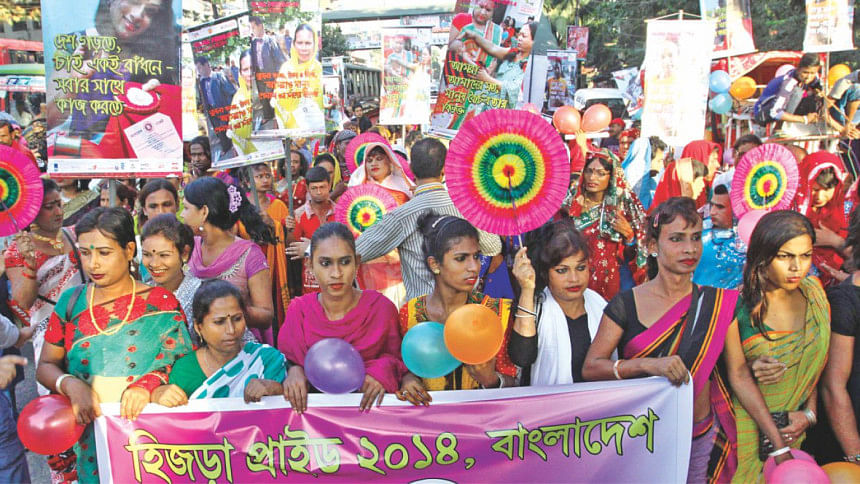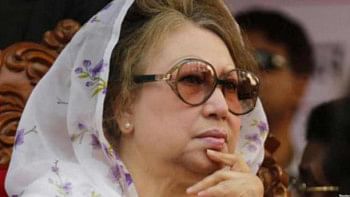Living in a Limbo

Photo: Star File
As a result of the global debate on equality and social acceptance of trangenders, the Bangladeshi government now recognises 'Hijras' as a part of the third gender. This is definitely good news, but we have failed to give a clear definition of what constitutes as the third gender proving that they have not really been included in the policies and academia concerning them. This situation leads to obstacles in getting proper health services in both private and public health centres.
Shale Ahmed, Executive Director of Bondhu Social Welfare Society Bangladesh, an organisation working in the country to develop the conditions of transgender people said that a common misconception prevailing in our society is that a transgender person is born with specific genitalia, while in reality; in most cases they identify themselves with the opposite gender. Transgenders born with male genitals but who identify as female usually emasculate themselves through a transitioning ceremony.
As they grow old, transgender people take various hormone therapy regimens and surgeries to align their physical appearance with their identity. In Bangladesh, there is very poor access to transition-related medical care. Because of the existing stigma persisting in healthcare services, transgender people don't prefer going to experts and in most cases, they seek hormonal treatment without any medical supervision which increases the risks of diseases such as cancer.
Shale Ahmed said, "In our country medical officers and doctors have no specific professional training to support and help transgender people. And that's why when a transgender person visit a hospital, they do not get proper medical services. For that reason, many transgender people avoid going to hospitals even when they feel seriously unwell."
Even though the lifestyle of Hijras in South Asia follows the centuries-old mythological tradition, their survival is shaped by social taboos and prejudice. The individual lifestyles of transgender people living in our country face discrimination, marginalisation and hostility on a daily basis. This very real fear of dealing with the stigma and judgmental attitude of healthcare providers keeps this community away from seeking proper healthcare.
Even though laws and public knowledge of transgender issues have evolved over time, limited or zero medical training is offered in medical schools. Our medical curricula is mostly based on the traditional woman to man spectrum, ignoring the unique set of medical needs of people whose gender identity does not match the biological sex they were assigned at birth. As a result, the country seems to be lacking in physicians with requisite knowledge and comfort level for treating transgender individuals.
In addition to gender discrimination, lack of proper knowledge is another barrier to access to healthcare that transgender people experience. The attitude of people towards those who don't fit the traditional binary identities has definitely changed in the last few years all over the world. In order to treat transgender people as human beings and nothing less than that, and to increase their access to safe healthcare, comprehensive transgender medicine training curricula for medical students, physicians and other healthcare professionals is a must need.

 For all latest news, follow The Daily Star's Google News channel.
For all latest news, follow The Daily Star's Google News channel. 



Comments